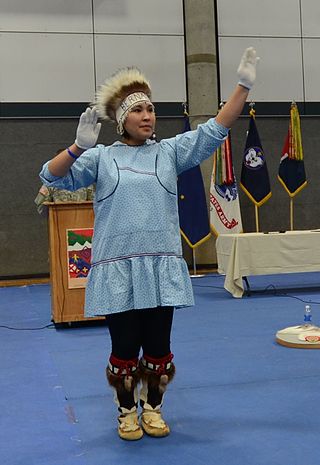
The United States does not have an official language at the federal level, but the most commonly used language is English, which is the de facto national language. In addition, 32 U.S. states out of 50 and all five U.S. territories have declared English as an official language. The great majority of the U.S. population speaks only English at home. The remainder of the population speaks many other languages at home, most notably Spanish, according to the American Community Survey (ACS) of the U.S. Census Bureau; others include indigenous languages originally spoken by Native Americans, Alaska Natives, Native Hawaiians, and native populations in the U.S. unincorporated territories. Other languages were brought in by people from Europe, Africa, Asia, other parts of the Americas, and Oceania, including multiple dialects, creole languages, pidgin languages, and sign languages originating in what is now the United States. Interlingua, an international auxiliary language, was also created in the U.S.

Asia is home to hundreds of languages comprising several families and some unrelated isolates. The most spoken language families on the continent include Austroasiatic, Austronesian, Japonic, Dravidian, Indo-European, Afroasiatic, Turkic, Sino-Tibetan, Kra–Dai and Koreanic. Many languages of Asia, such as Chinese, Sanskrit, Arabic,Tamil or Telugu, have a long history as a written language.

Alaska Natives are the Indigenous peoples of Alaska and include Alaskan Creoles, Iñupiat, Yupik, Aleut, Eyak, Tlingit, Haida, Tsimshian, and a number of Northern Athabaskan cultures. They are often defined by their language groups. Many Alaska Natives are enrolled in federally recognized Alaska Native tribal entities, who in turn belong to 13 Alaska Native Regional Corporations, who administer land and financial claims.

Jewish languages are the various languages and dialects that developed in Jewish communities in the diaspora. The original Jewish language is Hebrew, supplanted as the primary vernacular by Aramaic following the Babylonian exile. Jewish languages feature a syncretism of Hebrew and Judeo-Aramaic with the languages of the local non-Jewish population.
A national language is a language that has some connection—de facto or de jure—with a nation. The term is applied quite differently in various contexts. One or more languages spoken as first languages in the territory of a country may be referred to informally or designated in legislation as national languages of the country. National languages are mentioned in over 150 world constitutions.
Lists of Americans are lists of people from the United States. They are grouped by various criteria, including ethnicity, religion, state, city, occupation and educational affiliation.

The Arabic script is the writing system used for Arabic and several other languages of Asia and Africa. It is the second-most widely used alphabetic writing system in the world, the second-most widely used writing system in the world by number of countries using it, and the third-most by number of users.

As of 2020, Alaska has a population of 733,391.
The languages of North America reflect not only that continent's indigenous peoples, but the European colonization as well. The most widely spoken languages in North America are English, Spanish, and to a lesser extent French, and especially in the Caribbean, creole languages lexified by them.

Rebecca or Rebekah is a feminine given name of Hebrew origin. It is the name of the biblical figure Rebecca, wife of Isaac and mother of Jacob and Esau. The name comes from the Semitic root ר-ב-ק (r-b-q), meaning "to tie firmly"; Jones' Dictionary of Old Testament Proper Names and the NOBS Study Bible Name List suggest the name means captivating beauty, or "to tie", "to bind". W. F. Albright held that it meant "soil, earth".

The Athabaskan language family is divided into the Northern Athabaskan, Pacific Coast Athabaskan and Southern Athabaskan groups. The full Bible has been translated into two Athabaskan languages, and the complete New Testament in five more. Another five have portions of the Bible translated into them. There are no Pacific Coast Athabaskan languages with portions of the Bible translated into them.

Speech Recognition & Synthesis, formerly known as Speech Services, is a screen reader application developed by Google for its Android operating system. It powers applications to read aloud (speak) the text on the screen, with support for many languages. Text-to-Speech may be used by apps such as Google Play Books for reading books aloud, Google Translate for reading aloud translations for the pronunciation of words, Google TalkBack, and other spoken feedback accessibility-based applications, as well as by third-party apps. Users must install voice data for each language.
Baidu Fanyi is a service for translating text paragraphs and web pages provided by Baidu.











